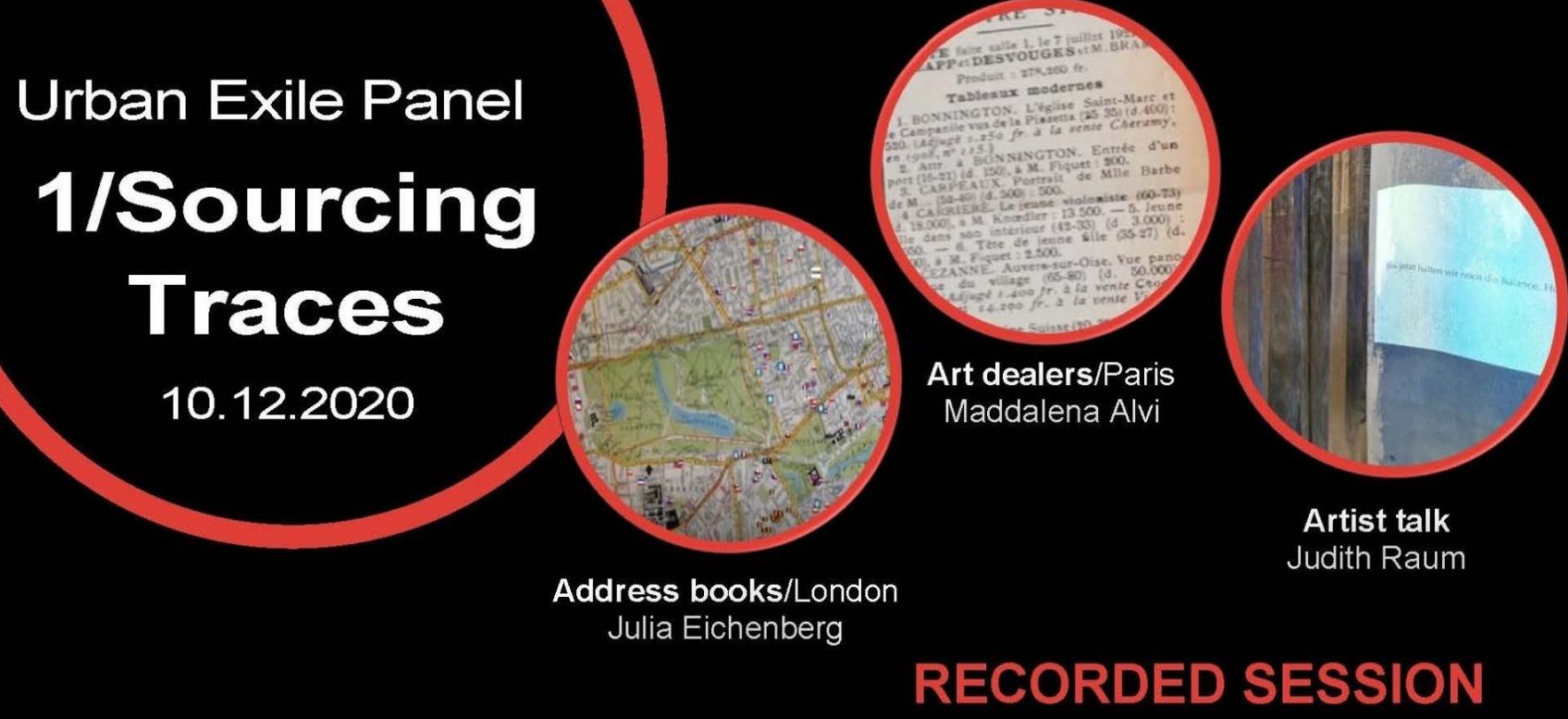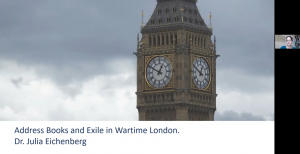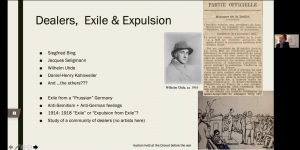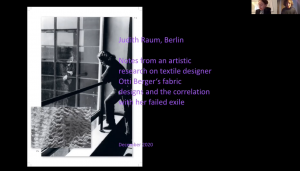Urban Exile Panel 1: “Sourcing Traces” recording of 10.12.2020
The panel “Sourcing Traces” took place as a kick-off for a transnational and transdisciplinary discourse on the occasion of METROMOD’s second book “Urban Exile”

On the panel series “Urban Exile”
The series followed the question, how historical exile, flight and migration could be examined under a glocal, urbanistic perspective? Each session included two research lectures from the book’s authors as well as one talk of a contemporary artist dealing with exile.
Against this extended horizon of thinking the public panel series “Urban Exile” contributed to the theory and methods of research on exile, cities and modernities. By choosing the term exile as a central category for methodological investigations of urban culture, we aimed to rethink its application in a transcultural, global context. Although it is widely accepted that migration shapes cities, until now, exile research has rarely been written from an urban perspective.
Taking a historical perspective and negotiating it artistically for the present, the online panels focused on dislocations in the first half of the 20th century. Back then modern movements constituted themselves in global exchange. In cities around the world e/migration transformed urban spaces by forming new communities as well as cultural zones. Experiences of exile by locals and migrants alike shaped the intertwining of urbanity and creative practices.
Panel 1: Sourcing Traces (Moderation: Burcu Dogramaci & Helene Roth)
Panel 1 of the public panel series “Urban Exile” on 12 December 2020 was devoted to the topic “Sourcing Traces” and kept track of exiles’ visual and written legacy. Drawing on examples from a range of urban centres around the world, the contributors shared methodologies relating to the challenges and benefits surrounding the nexus of exile and urban research. We discussed the opportunities and limits of research in dealing critically with sources. The status of ego-documents (letters, diaries, autobiographies) in exile research was thematized and asked how source-based research can be productively combined with other methods and theories. What status do sources, including ego-documents, have for visual artists when they deal with historical themes and persons? And how can historical documents be brought together with their own artistic practice?
The first speaker of the panel, the historian Julia Eichenberg from HU Berlin, focused on London as capital of Allied Europe. Here France, Poland, Belgium, the Netherlands, Czechoslovakia and others were represented by exile governments. Julia Eichenberg mentioned the close cooperation between the different governments-in-exile and British authorities – what is called the ‘London Moment’. In her talk she emphasized the insights of address books in London exile as sources for her research.
The second speaker, the art historian Maddalena Alvi from University of Cambridge, introduced the Parisian art market between 1910 and 1925, which was hit by the forceful expulsion of non-French art dealers after the outbreak of the First World War in 1914. In her talk she reflected on how the auction market and the related archive material such as official art records and dealers’ memoirs could shed light on the interrelation between migration, ‘foreign’ capital, and the urban space.
The third speaker of the panel, the Berlin based artist Judith Raum, presented her object-orientated methods to reconstruct the work and practice of the Bauhaus weaver Otti Berger, known in her time for her progressive designs and techniques. As a Jewess Berger had to leave the German Reich for England in 1937, where she did not manage to gain a foothold professionally. Deportation and murder in Auschwitz finally brought her career to an abrupt end and led, as well as her failed emigration, to the dispersion of her work. Judith Raum’s lecture asked about the possibilities of artistically reappraising a work scattered over worldwide archives and torn apart in its inner logic.
Several images are blurred due to copyright restrictions.
The discussion among the panellists and with the audience dealt with questions of intersectionality, i.e. the multiple discrimination of artists on the basis of their gender, ethnicity and disabilities. In addition, the hitherto hardly explored connection between exile and reception was addressed, whereby perceptions of the person and the work depended strongly on the specific context of time and place.
Images: Courtesy of the speakers; Text and moderation by Burcu Dogramaci and Helene Roth





